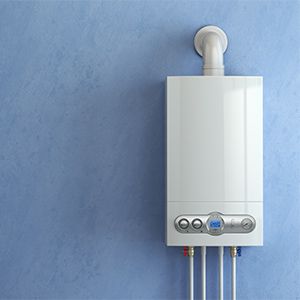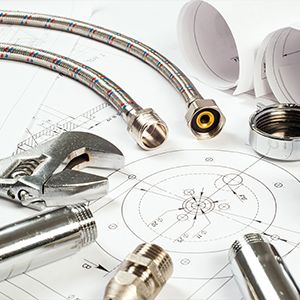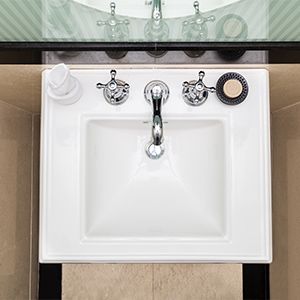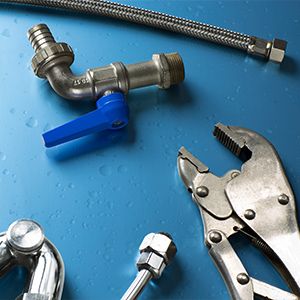FAQs
FAQs
No job too big or too small, we do it all!


Olympia • Tacoma • Puyallup • Seattle
As a plumbing company, we believe that it is part of our duty to the community to share knowledge and help people maintain their interior and exterior plumbing.
Below are some of the most common questions asked by our customers throughout the years. If you cannot find an answer to your question, or feel like you need expert help, please feel free to contact us by phone at 253-435-1996 or email using the form shown here.

FAQ – Water Heaters
Does my water heater need regular maintenance?
No one wants their water heater to go out unexpectedly! We recommend having your water heater checked about once a year to ensure everything is operating properly. This can prevent problems and extend the life of your water heater.
What's the expected lifespan of a water heater?
For traditional water heaters, you can expect a lifespan of about 10 years, especially if you’re having it serviced annually. Tankless water heaters have a bit longer life span, and may operate for up to 20 years.
How often should I flush my water heater?
Having your water heater drained completely into an appropriate drain is maintenance that most manufacturers recommend be don on an annual basis. Flushing your water heater helps clear out sediment and mineral buildup. It can extend the lifespan of your heater by years, reduce the amount of sediment or minerals coming back out when you shower or obtain water from faucets, and allows for more space for water and improved functionality of your unit.
How long does my water heater take to warm the water?
Gas heaters generally heat water up faster than electric water heaters. Some of the factors that impact heat-up time include the size of the tank and BTU input. If it’s been an hour or more since you started up your water heater and you still don’t have hot water, there could be something amiss and you should have your water heater looked at by one of our professionals.
My water heater makes rumbling or popping noises - is this normal?
If you hear rumbling or popping noises from your water tank, it could mean you have sediment build up. These noises occur when hot water expands and escapes sediment which has built up in the bottom of your tank. It’s not generally dangerous but you should have your unit inspected by a professional, because it’s a sign that your water heater tank has been compromised in some way. Sediment build up can also cause excess heating at the bottom of your tank and decrease its lifespan.
Should I upgrade to a tankless water heater?
Many new home builders opt for tankless water heaters from the get-go, a decision which offers significant benefits to home owners:
- Lower operational utility costs
- Federal rebates
- Lower physical footprint
- More convenient location
- Offer a constant flow of on-demand hot water.
While they generally cost more than traditional tank heaters, these benefits often quickly make up the difference. If you have considered upgrading your traditional tank heater, these benefits could be persuasive. We would be happy to answer any questions you might have or assess your particular situation.

FAQ – Pipes and Leaks
What are the most common causes of pipe corrosion?
The most common causes of pipe corrosion include:
- Chemicals in the water
- The pH of the water
- The amount of oxygen in the water
- The temperature of the water
- The water pressure and the speed at which the water moves through the pipes
Find out how you can protect your pipes with our pipe lining – CIPP process.
How can I check if I have a leak?
If you think you have a leak in your home, there is an easy way to check. Go out to your water meter and record the level. Make sure no one uses any water for a few hours, then go back and check the meter again. If the level has changed, you probably have a leak – that is when we come in to repair it!
Do I need to worry about hidden leaks?
Yes! Not only do leaks get larger with again, they can also potentially cause damage to your home. Leak detection and repair offers a number of other benefits, including:
- Reduced or eliminated water loss
- Reduced risk of damage associated with leaks
- Reduced need for emergency repairs
- Reduced need for water treatment and pressurization
Why do my pipes rattle and make noise all the time?
If you have noisy pipes, your water lines might not be properly secured, meaning there are some spots where they rub up against your floor joists. We can make sure your pipes are properly secured and install pipe hangers between your pipes and the joists to eliminate the noise.

FAQ – Sinks, Toilets, and Fixtures
What do I do if my toilet overflows?
An overflowing toilet is usually caused by a leak in your tank’s fill valve or deterioration of the shaft or wire that sets the fill level. Whatever the cause, we can come out and diagnose it for you.
Is there anything I shouldn’t put down my toilet?
While it might seem like a quick way to dispose of things other than toilet paper, none of these items should be flushed down the toilet:
- Baby Wipes, napkins, facial tissue or paper towels
- Sanitary products
- Diapers
- Q-tips, cotton balls or dental floss
- Hair
- Food scraps
- Small toys
- Cat litter
How do I clean my faucet?
Most faucets can be cleaned with a damp, soft cloth. If you just installed new faucet(s), you may want to find out if the manufacturer has any recommended cleaning solutions. Make sure to avoid an abrasive cleaners or pads – these may scratch the surface and finish of the faucet.
Is there anything I should not put down my garbage disposal?
Though it can be a handy way to reduce trash, your garbage disposal is not suited to dispose of all food materials. Here are some things you should not put through your garbage disposal:
- Potato skins
- Bone fragments
- Ribs
- Corn husks
- Rice, macaroni or potatoes – starchy foods like macaroni, rice and potato salad can get stuck in your garbage disposal, stick to the walls of your pipes, expand over time and even harden into a hard-to-release clog
- Eggshells
- Banana peels
- Fats / grease
- Unpopped popcorn kernels
- Onion skin
- Fruit pip, pits or seeds
- Stringy vegetables, such as asparagus and celery

FAQ – Miscellaneous
What is a clean-out?
A sewer clean-out is an important part of your home’s plumbing and waste disposal system. Every homeowner should know where the sewer clean out is located, and landlords should make sure that their tenants are aware of the location of the sewer clean out as well.
The sewer clean-out is a pipe with a cap that provides access to the sewer line so that blockages can be removed. The lateral sewer line is the sewer line that connects your home to the public sewer system. Often the clean out is near the home itself, or near the property line. Sometimes a clean out is located inside the basement of the home or in the crawl space.
Do I need a sump pump?
If you have a basement that frequently floods, or your home is built so water flows towards it, you should have a sump pump. A sump pump will prevent the basement, laundry areas and storage rooms from being damaged during heavy rains or in places where the water table is high.
Ready to get started?
Schedule a free estimate with us today
